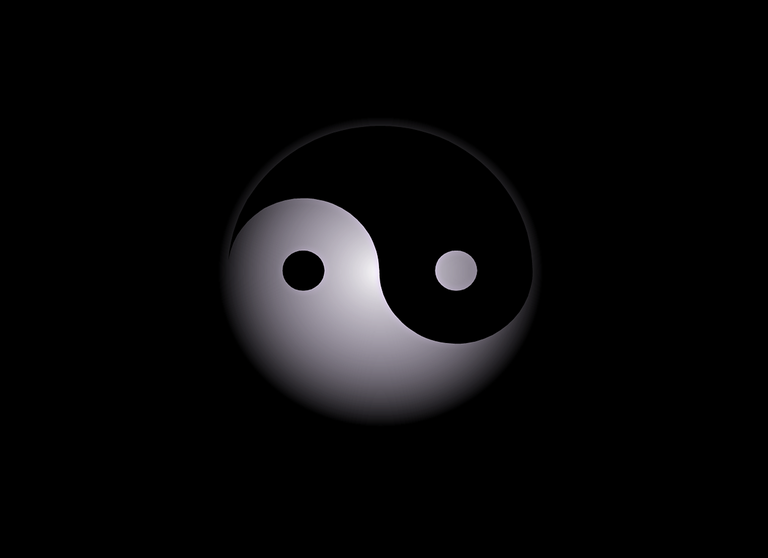
It is interesting to see that parallels between different ideas that were written in isolation from each other in space or time.
I was reading the Tao Te Ching recently, as it's a part of the philosophy underpinning the ONO project.
In Chapter 7 of the ONO White paper, the exegesis of the justification for, and structure of, the ONO DAC begins with Chapter 80 of the Tao:
A small country has fewer people.
Though there are machines that can work ten to a hundred times faster than man, they are not needed.
The people take death seriously and do not travel far.
Though they have boats and carriages, no one uses them.
Though they have armor and weapons, no one displays them.
Men return to the knotting of rope in place of writing.
Their food is plain and good, their clothes fine but simple, their homes secure;
They are happy in their ways.
Though they live within sight of their neighbors,
And crowing cocks and barking dogs are heard across the way,
Yet they leave each other in peace while they grow old and die.
- Chapter 8 Tao Te Ching, translation by Gia-Fu Feng (馮家福 Feng Jia-fu, 1919–1985) and Jane English (1942–)
Vintage Books, 1989 https://terebess.hu/english/tao/gia.html#Kap80
There's a lot in here. It's actually quite philosophically dense. Though the community has wealth, no one is very poor. Though it is possible for industry to be more productive, it isn't, due to the human cost this would exact. The people can fight if necessary, but do not glorify conflict, or the taking of life. On that note, I read into this a mindfulness of mortality - not morbid fear, but definitely acknowledgement. They can travel if the wish or should they need to, but know that the grass isn't necessarily greener on the other side.
This can all seem a bit dull. But Perhaps Lao Tzu is admonishing the reader who places too little value on ensuring that all members of a community have their most fundamental needs and human rights fulfilled. And if this isn't a thinly veiled reminder to be grateful for what you have, I'd be very surprised.
Other passages of the Tao emphasise the benefit of Wu wei - non-action, or effortless action, as well as wei wu wei - action without action. In the context of governance, this is the core of the idea underpinning 'governing lightly', and informs that interpretation of decentralization that the ONO founders are aiming for.
I don't know if there is a parallel to wu wei in classical western philosophy. But a lot of this puts me in mind of Eudaimonia - the Greek idea of "human flourishing". Of course, there was, and continues to be, rampant disagreement over the exact virtues of excellence - Arete - that lead to this flourishing. But the interpretation of the Stoics, that this was a matter of rationally living in accordance with nature (broadly construed), strikes me as being the most compatible with Lao Tzu's ideas.
The other parallel - and I can't be the only person to think this, but haven't really investigated - is the idea of the Tao, the Way, and how it can be talked about. Consider the very beginning:
The Tao that can be told is not the eternal Tao.
The name that can be named is not the eternal name.
- Chapter 1 https://terebess.hu/english/tao/gia.html#Kap01
Even though he famously eschewed reading other philosophical works, I think Wittgenstein understood this concept. I'm a great fan of of the Tractatus Logico-Philosophicus, so here's some snippets that I think are applicable
7 Whereof one cannot speak, thereof one must be silent.
4.1212 What can be shown cannot be said.
6.522 There is indeed the inexpressible. This shows itself; it is the
mystical.
Wittgenstein considered ethical and metaphysical truths to be 'inexpressible' when he wrote this. But he saw that you can show, through action, things that were impossible to precisely put into words. OK, so maybe it's a tenuous connection, but I think it bears thinking about a little more. What is true I think, is that he knew what many people who have tried to teach ethics over the years have come to see: You can say a lot about ethical theories to people, but the best way to help them learn is to show them, by working through real-life problems.
What does any of this mean for ONO? Maybe it's too soon to know for sure. But I can see the possibility of something that upholds certain standards of ethics and inalienable rights, and is actively pursuing a mechanism to incentivize behaviour accordingly - but in a decentralized way. Self-governance from the bottom up, with only the lightest of touches from the top down (if ever).
Thanks for reading.

Image: https://pixabay.com/photo-99824/
Custom footer by @bearone
Special thanks goes to your for your editing help recently. Thanks for writing this insightful article as well.
I'm grateful (and excited) for the opportunity to contribute to this project. And I think there will be plenty more to write about as it moves forward too.
The line that struck me most was, "Men return to the knotting of rope in place of writing."
I think a lot about the compulsion to write; namely because I'm afflicted by it. It does seem to me that the urge to write—especially philosophically—comes from a place of unhappiness or distress. It's a subconsciously motivated drive to work out and analyze problems.
In this simple culture, the men can go back to peaceably "tending to their existences" rather than feeling the need to dissect and troubleshoot their experience.